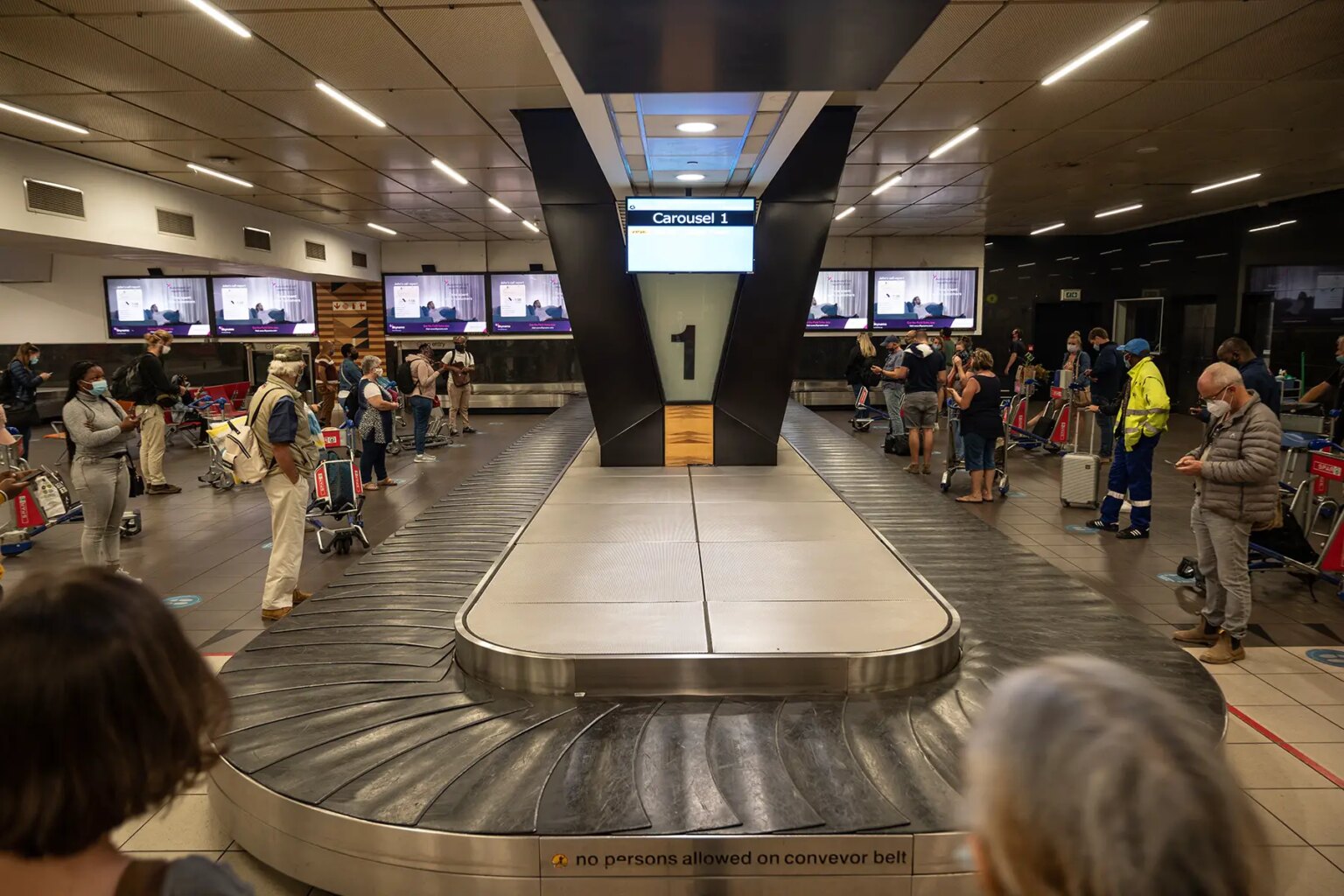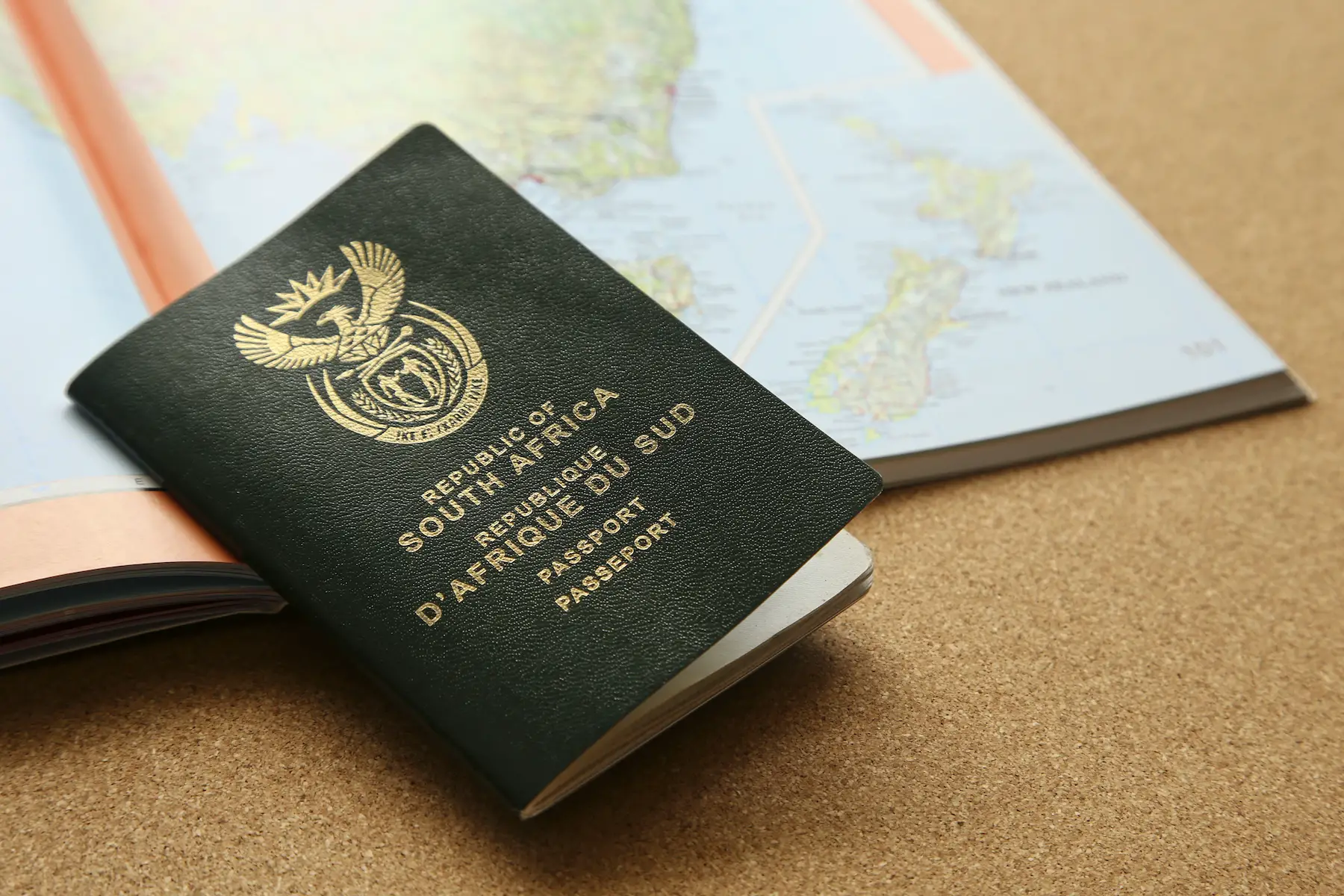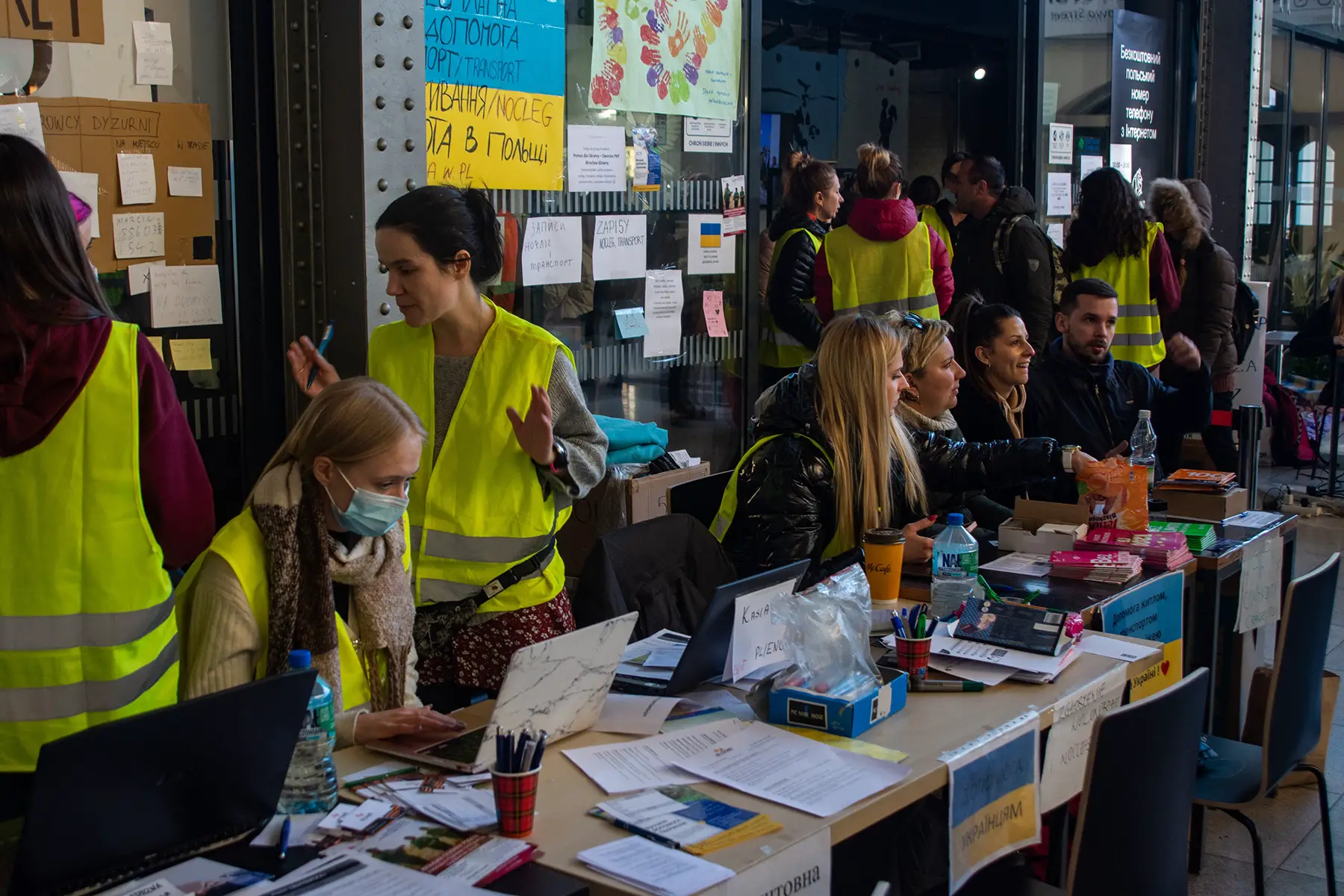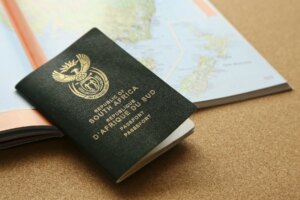Visa logistics can be confusing, no matter the country, especially if your visa application relies on someone else’s immigration status. Fortunately, spousal visas in South Africa are not very complicated. That said, it’s important to understand the requirements and responsibilities of moving to the country on a family or spousal permit. Below, you’ll find all you need to know about making a start on applying for your visa, from costs to qualifying family members. Sections include:
- Spousal visas in South Africa
- Who can move to South Africa to join family?
- Relative’s visa
- Short-term visits to family members in South Africa
- Joining family members who only have a temporary South African visa
- Family visas to join refugees or asylum seekers in South Africa
- When family members arrive in South Africa
- What the divorce or death of a family member in South Africa means for your visa
- Family visa complaints and appeals in South Africa
- Useful resources
lingoking
Do you need help translating documents? Make sure all your legal proceedings go smoothly by using lingoking for all your translation needs. Whichever papers you need translated, lingoking's network of professional translators can help. Order online 24/7 and take some of the stress out of your legal procedure.
Spousal visas in South Africa
The South African family visa is known as a ‘relative’s visa.’ The Department of Home Affairs (DHA) handles all visa matters, including relatives’ visas. Although the South African government does not publish a regular update on the number of people on relative’s visas, the most recent numbers show that these are the second most common form (PDF from 2015) of temporary residence permits. Generally, to obtain a relative’s visa, you must be a relative of a citizen or permanent resident of South Africa.
People from all over the world receive relative’s permits for South Africa each year – the countries with the most recipients are Bangladesh, Nigeria, and Pakistan. Among the top ten countries are five African countries and five from other continents.
Who can move to South Africa to join family?
Who does not need a family visa to move to South Africa?
The only people who do not need a permit to move to South Africa with their relatives are citizens and permanent residents of South Africa. Everyone else will need some kind of visa, and a relative’s visa is a good option for those who qualify.

Who needs a family visa to join family in South Africa?
Immediate family members of citizens and permanent residents can apply for a spousal visa in South Africa (relative’s visa). They must prove that they are either a first or second level of kinship from the applicant. Specifically, the first level of kinship includes parents, children, and spouses. The second level of kinship refers to brothers and sisters.
Relative’s visa
Who can apply?
As discussed, you may qualify for a relative’s visa in South Africa if you are an immediate family member of a permanent resident or citizen. You can apply for either a temporary residence permit or permanent residence. Relatives who qualify are:
- Spouse, civil partner, or life partner (you must have been cohabitating for at least two years)
- Dependent children (adopted or biological)
- Parents
- Siblings
Visa length
The temporary spousal visa in South Africa lasts for a maximum of two years. Although you cannot renew it, you can apply for another relative’s visa once your current one expires. However, you must still meet the financial and kinship requirements. For example, you must not have had a divorce from your sponsor.
Visa entitlements
The person who is already a citizen or permanent resident acts as the immigration and financial sponsor for their relative. So, the applicant must demonstrate that their relative in South Africa can fully support them for the two-year duration of the visa. The latest required monthly amount is R8,500 per month – this means, upon applying for a two-year visa, you will need to provide a bank statement showing that they have R204,000 available to support you. However, this financial requirement does not apply if the sponsored relative is a spouse or a minor child. Generally, though, you may not engage in any work or study while in South Africa on a relative’s visa – to do so, you would need your own work or study visa in your name.
How to apply
All applicants can apply for a relative’s visa from their local consulate or the Visa and Permit Facilitation Center closest to them. Calling your consulate for further information is a wise first step, as they can give the most up-to-date information on processing times and any changes. You can also confirm that you have all the required documents and schedule your document drop-off appointment. The relative being sponsored submits the application.
Conveniently, spouses and minor children can enter South Africa on a visitor’s visa and submit a relative’s visa application from within the country; parents and siblings do not have this option – they must apply before arrival. Once you have submitted your documents, the consulate will provide you with a reference number to track your application and your appointment date to get your biometric information taken. You can find a list of the necessary documents for the permanent permit for spouses and the temporary permit on the DHA website, but generally, you’ll need:
- A completed BI-1738 form (PDF – for a temporary residence permit) or DHA-947 form (PDF – for a permanent residence permit)
- Applicant’s passport, valid for at least 30 days after the end of the intended visit, with at least one free page. You may also require a passport photo.
- Proof of financial support, such as a salary slip or bank statement, if the applicant is a parent or a sibling
- Valid temporary residence permit if applying for a permanent residence permit in South Africa
- Proof of payment of the application fee, if necessary
- Cash deposit equal to the value of a return or onward ticket (for siblings and parents)
- Police clearance for everyone from each place they have lived longer than 12 months since the age of 18
- Proof of kinship (such as an unabridged birth certificate or marriage certificate) and statement of the purpose and duration of your visit
- Proof that the sponsor is a South African citizen or permanent resident, such as an identity document or passport
- Required vaccinations depending on country of origin
- Medical report
- Radiology report
Visa costs
If the relative being sponsored is a spouse or a minor child, then there is no application fee. However, when applying through VFS Global, you must pay a service fee of R1,550. The DHA charges an application fee of R425 for temporary residence permits for other relatives. Meanwhile, the permanent residence permit costs R1,520 for relatives who are neither spouses nor minors, plus the service fee. Most consulates will accept cash or credit payments in-person. However, verify this with your local office. Also, keep in mind that if the sponsor is bringing their parents or siblings, they will have to demonstrate proof of R8,500 per month per relative.
Short-term visits to family members in South Africa
If you hope to visit family members in South Africa on a short-term basis, you may only have a few options. Firstly, check if South Africa requires your nationality to have a visa to enter. Citizens of certain countries do not need a visa to enter South Africa for 30 to 90 days. If you require a visa to enter, you should consider applying for a visitor’s visa. These can be issued for up to 90 days and are a good short-term option. In some cases, the visitor’s visa can be extended for another 90 days. To apply, visit your local South African consulate.
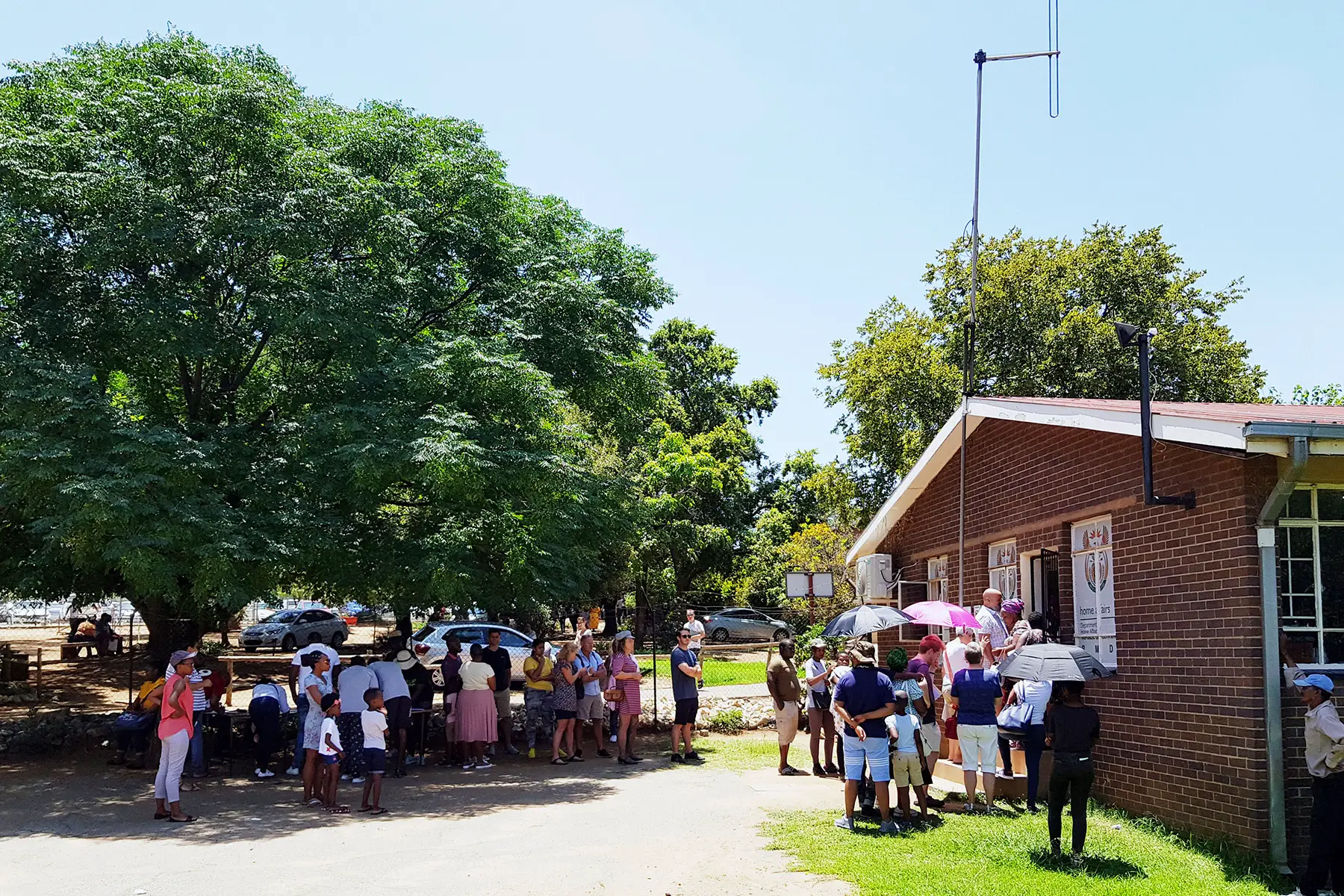
Those looking to stay longer may be able to do so under certain conditions, such as receiving an offer to teach at an international school. If this is not the case, and you do not need a visa to enter South Africa, you may be able to extend your stay by leaving the country after 90 days and re-entering. If you require a visa to enter South Africa, and want to stay longer than your visa allows, you should speak to the consulate or a lawyer about your options.
Joining family members who only have a temporary South African visa
There are several types of temporary visa in South Africa, including Critical Skills, General Work, or Intra-company Transfer Work Visas. On these types of permits, spouses and dependent children may join their family member in South Africa. Conveniently, the length of the visa for the family member will match the length of time of the temporary visa. Keep in mind that family members who join someone on a temporary visa are not permitted to work or study in South Africa. It does not cost extra to include a spouse or dependent child on your temporary visa application. Other family members, such as siblings or parents, would need to apply for a visitor visa if they wish to stay longer than the visa-free time limit.
Family visas to join refugees or asylum seekers in South Africa
As an asylum-seeker, you have the right to unify your family (PDF), called ‘family joining’ in South Africa. These family members qualify for family joining:
- Spouse
- Unmarried children (under 18 years of age)
- Dependent children
- Parents who are dependent on you, provided they are “destitute, aged, or infirm“
The only caveat is that you must include all your dependents on your original application. Your case will become more complicated if you later try to bring a dependent who was never mentioned on your original application. Of course, if you have a child after you apply for asylum, you can add them to your file afterward. There is no cost to apply for asylum or family joining. The Scalabrini Centre of Cape Town provides more information on applying for family joining.
When family members arrive in South Africa
Once you arrive in South Africa, there is no need to register with the municipality. However, you may want to register with your country’s local consulate to stay informed of any relevant updates. Public healthcare in South Africa is accessible to everyone, regardless of nationality, so your family members can use it. However, many expats prefer to take out private health insurance. For spouses and dependents, it is pretty straightforward to include them on the insurance policies. For different family members, you may want to discuss options with your insurance provider.
What the divorce or death of a family member in South Africa means for your visa
If you and your spouse decide to get a divorce, your immigration situation may be affected. Unfortunately, if you are on a spousal visa in South Africa and sponsored by your spouse, your divorce will nullify your legal status. Because your visa was based on a relationship with a South African permanent resident or citizen, you no longer have the right to that legal status once that relationship is over. If this is the case, be sure to consult a lawyer and look into getting your own General Work or even Critical Skills visa.
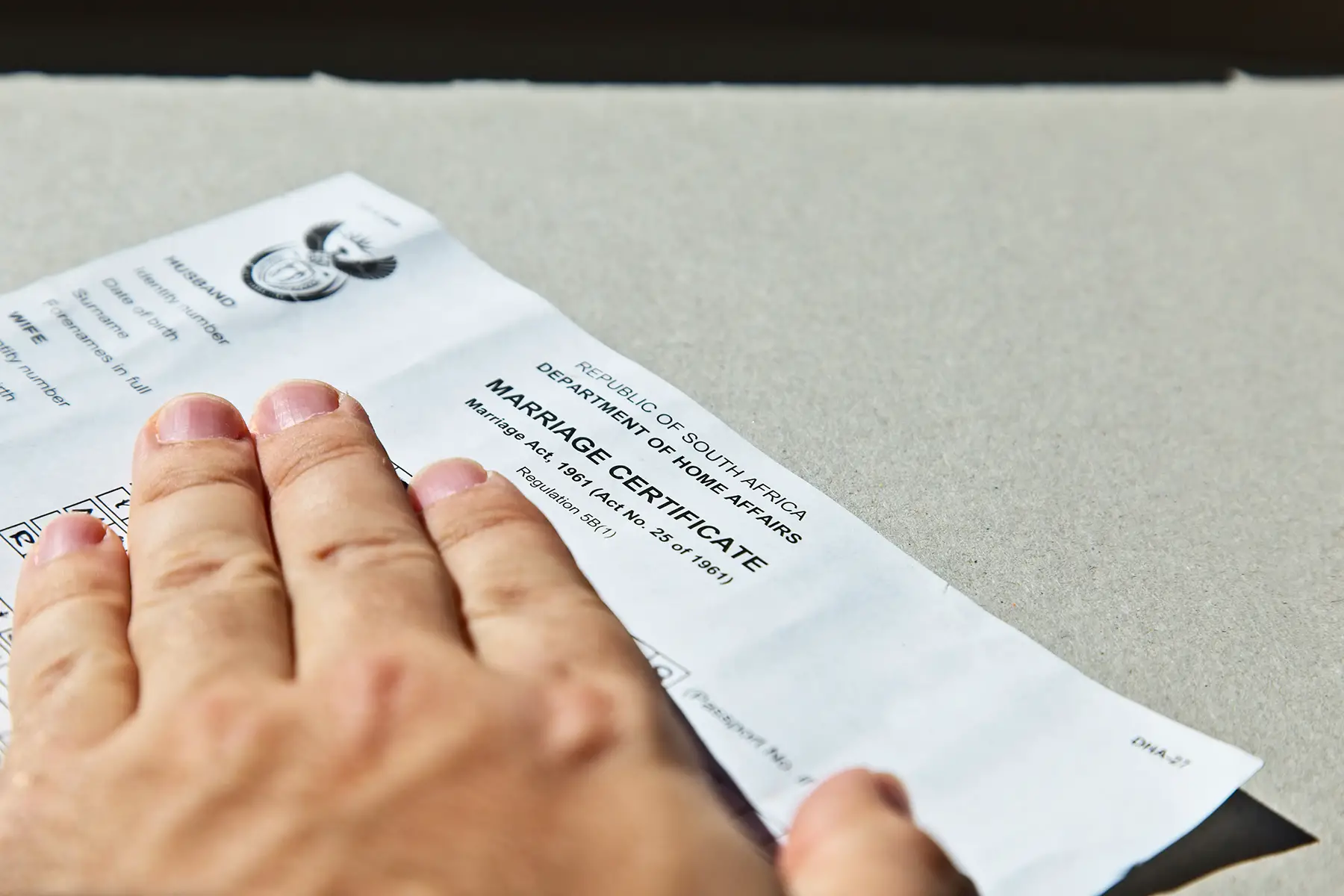
If you are on a spousal visa in South Africa and your spouse dies, the same situation may apply, where you lose your legal status because the relationship is over. However, it would be wise to contract a lawyer to advise you on the options available.
Family visa complaints and appeals in South Africa
The DHA has complete discretion when it comes to immigration visas. If your visa application is denied, you will be provided with a reason for the denial and further steps to appeal. One of the most common denial reasons is an incomplete or incorrectly filed application, so be sure to submit all the required documents. However, in some cases, the reason for the denial is more complicated. Thus, it’s often a good idea to consult with an immigration lawyer who can detail your options and advise you on the best next step. After receiving your denial, you have 10 working days to submit an appeal.
Useful resources
- VFS Global – Information on South African visas
- Department of Home Affairs – Government body that manages visas
- DHA-947 form – application form for relative’s visa (permanent residence)
- BI-1738 form – application form for a temporary relative’s permit
- Scalabrini Center – Family joining information
